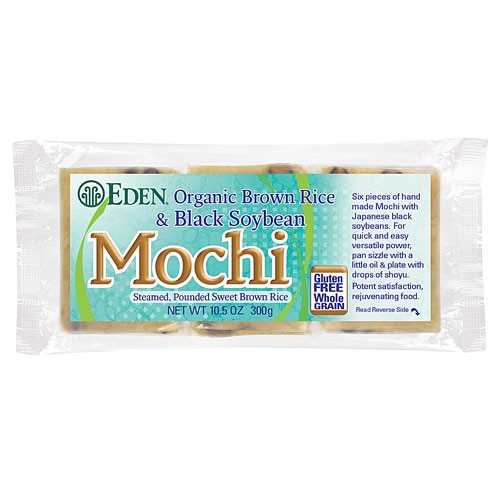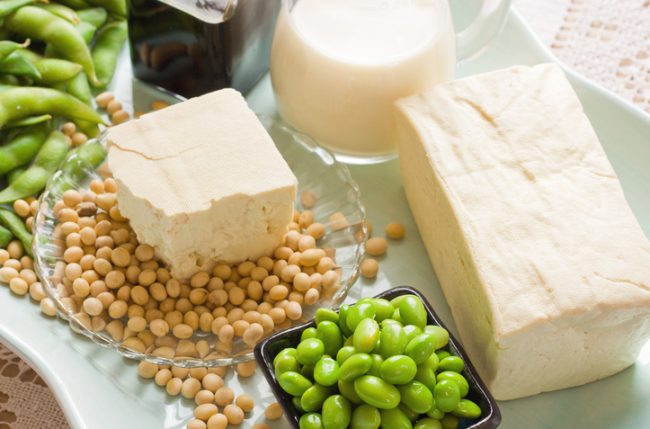Not long ago, soy was tantamount to living in a rustic cabin and growing your own wheat. Meaning, of course, that it was believed to be reserved for the granola set—ecologically-conscious people who put the planet and their health before anything else.
But with the growing rise of vegan and vegetarian diets—as well as a collective turn towards eco-consciousness, the surging popularity of Japanese fare and the FDA’s claim that soy can reduce the risk of heart disease—soy went from chunks of tofu in the back of the health food store to what many thought was a dietary champion.
At the onset, its own surge in popularity—from edamame and soy milk lattes to tofu burritos (even Chipotle now offers one)—made sense. A complete protein, soy is rich in a number of nutrients and serves as the perfect substitute on Meatless Mondays.
In recent years, however, soy has been decried as often as it’s been praised. Some tout its curative properties; others proclaim it has the opposite effect entirely. Amid all the controversy, the contemporary eater is rightfully baffled—should I or should I not soy? With these contradictions in mind, we’ve put together the lowdown on soy so that you can make an informed decision:
Pros
Soy—a legume native to East Asia that’s found in everything from miso soup to protein bars—contains essential amino acids and is, as mentioned, what’s deemed a
complete protein. Relatively low in calories and fat, it brims with potassium, folate, manganese, iron, calcium, vitamin B6, selenium and copper—all vital building blocks to a healthy brain and body.
Its possible benefits are just as alluring. For one, the National Institutes of Health reports that it has the potential to diminish hot flashes in menopausal women, reduce the risk of fractures in post-menopausal women, and mitigate PMS symptoms in menstruating women. Meanwhile, the American Heart Association says that 50 grams of soy per day can improve one’s chances against the risk of cardiovascular disease and lower LDL (or “bad”) cholesterol.
Additionally, studies of Asian men report that they have a 30% reduced chance of prostate cancer than those who eat less soy (or no soy at all). And when it comes to eating pure soy products as a form of protein—such as tofu, edamame and whole soy milk—it’s a no-brainer. “Soy provides an excellent source of protein, fiber, vitamins and minerals—without the cholesterol and saturated fat found in meat,” says Academy of Nutrition and Dietetics Spokesperson Vandana Sheth, RDN, CDE.
Cons
When soy first began receiving major attention, it was publicized as a panacea to a world of potential and existing health problems, from preventing cancer to thwarting osteoporosis. But as time went on, it also became clear that these uber-promising capacities were premature, if not misleading: Now, studies are presenting results that downplay the excitement suggested in preliminary findings—and even point to soy’s potential to create health problems.
Those 50 grams of soy products that one must consume to potentially reduce their risk of heart disease and lower their cholesterol is a boatload lot of soy, for example—as in eight 8-once glasses of soy milk or one and a half pounds of tofu, both of which would be a feat for any person. What’s more, studies on Asian populations tend to underemphasize the fact that these communities have been eating soy for much of their lives—not simply adding it into their diets in adulthood.
Further, soy contains isoflavones—and this is where much of the debate over soy rests. Isoflavones are a phytoestrogen that mimic estrogen in the body. Consumed in great quantities, they can disrupt the body’s natural hormonal balance and lead to critical issues, perhaps most importantly being that soy may “promote overexpression of breast cancer genes in some women,” says the Memorial Sloan-Kettering Cancer Center. Eaten in excess and soy may even cause menstrual cycles to shut down, as well as block calcium from absorption through the inclusion of phytic acid, a compound found in plants, brans and cereals.
Bottom Line
Still perplexed? You’re not alone—and it’s easy to be persuaded by both sides. But what most agree on is that more research needs to be conducted before soy is revered or reviled. In the meantime, use common sense when it comes to soy.
Avoid fake meats, soy powders and energy bars that contain soy, and opt for it in its most organic state: tofu, edamame, soy milk and soy nuts. Above all, exercise moderation and aim for a diet that relies not on one possible superfood but a range of plant-based items—particularly those with proven value. (Apple, anyone?)




